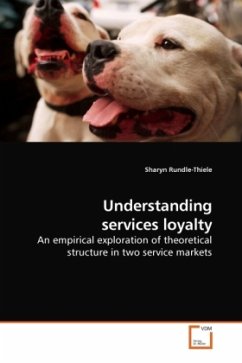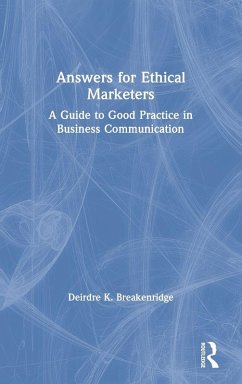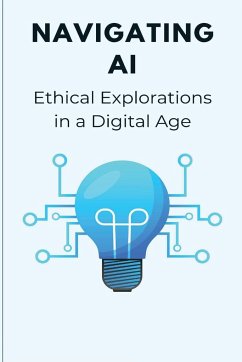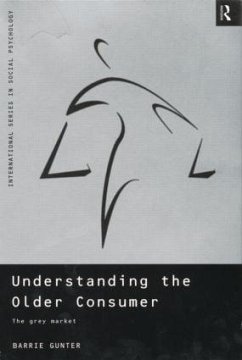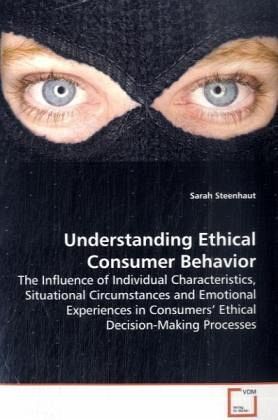
Understanding Ethical Consumer Behavior
The Influence of Individual Characteristics, Situational Circumstances and Emotional Experiences in Consumers Ethical Decision-Making Processes
Versandkostenfrei!
Versandfertig in 6-10 Tagen
52,99 €
inkl. MwSt.

PAYBACK Punkte
26 °P sammeln!
Did you ever take something in a supermarket withoutpaying for it? Did you ever keep quiet when receivingtoo much change at the checkout? Did you everpurchase an item, used it, and returned it to thestore afterwards for a refund? Did you ever copy a CD(music/video) from a friend?These and many more are all widespread everydaydeceptions by which we consumers benefit at theexpense of the seller The general purpose of thepresent dissertation was to contribute to a morethorough understanding of the why of consumer ethics,allowing marketers to predict unethical consumerbehavior, and ultimately prev...
Did you ever take something in a supermarket without
paying for it? Did you ever keep quiet when receiving
too much change at the checkout? Did you ever
purchase an item, used it, and returned it to the
store afterwards for a refund? Did you ever copy a CD
(music/video) from a friend?
These and many more are all widespread everyday
deceptions by which we consumers benefit at the
expense of the seller The general purpose of the
present dissertation was to contribute to a more
thorough understanding of the why of consumer ethics,
allowing marketers to predict unethical consumer
behavior, and ultimately prevent consumers from
taking advantage of the seller. More specifically,
the impact of 1/ individual characteristics (personal
values), 2/ situational circumstances (relationship
marketing), and 3/ emotional experiences (guilt)
within the ethical decision-making processes of
consumers are investigated.
paying for it? Did you ever keep quiet when receiving
too much change at the checkout? Did you ever
purchase an item, used it, and returned it to the
store afterwards for a refund? Did you ever copy a CD
(music/video) from a friend?
These and many more are all widespread everyday
deceptions by which we consumers benefit at the
expense of the seller The general purpose of the
present dissertation was to contribute to a more
thorough understanding of the why of consumer ethics,
allowing marketers to predict unethical consumer
behavior, and ultimately prevent consumers from
taking advantage of the seller. More specifically,
the impact of 1/ individual characteristics (personal
values), 2/ situational circumstances (relationship
marketing), and 3/ emotional experiences (guilt)
within the ethical decision-making processes of
consumers are investigated.






